Calendar
5:30 PM -Â 7:00 PMÂ CTÂ on Zoom

After years of steady growth, Houston METRO’s bus and rail ridership has experienced a sharp drop since the emergence of the coronavirus pandemic in Harris County in March of 2020.
They listened to transit-reliant Houston communities hit hard by Covid-19 to better understand the pandemic’s effect on Houstonians’ relationship with public transportation (access, utilization, future plans) in order to inform what local, state and federal policy proposals and/or investments should be prioritized moving forward.
Please join Air Alliance Houston on Wednesday, October 6th at 5:30 PM CT via Zoom as they release the findings of our new report “COVID and Public Transit in the Houston Region,†discuss how federal legislation may impact Texas transportation, and share recommendations for the transportation policy agenda.
Current speaker lineup:
- David Robinson, Chair of Houston City Council Transportation, Technology and Infrastructure (TTI) Committee and Vice Chair of H-GAC Transportation Policy Council
- Dr. Letitia Plummer, Houston City Council At-Large Position 4, Vocal equitable transportation advocate
- Community research team members
Moderator: Dr. Denae King, Interim Associate Director of the Barbara Jordan-Mickey Leland School of Public Affairs, TSU
This event will be held in English. Spanish interpretation will be provided.
Join Center for Houston’s Future on October 6 at 5:30 p.m. CDT for a conversation with Katharine Hayhoe, a globally renowned climate scientist and professor of political science at Texas Tech University, where she is director of the Climate Science Center. She is also Chief Scientist for The Nature Conservancy and author of Saving Us: A Climate Scientist’s Case for Hope and Healing in a Divided World.
Read about Hayhoe in The New Yorker: “How to Talk about Climate Change Across the Political Divide“

Katharine Hayhoe is an atmospheric scientist whose research focuses on understanding what climate change means for people and the places where we live. She is the Chief Scientist for The Nature Conservancy and a Horn Distinguished Professor and Endowed Professor of Public Policy and Public Law in the Dept. of Political Science at Texas Tech University. Her book, Saving Us: A Climate Scientist’s Case for Hope and Healing in a Divided World, will be released in September 2021 and she also hosts the PBS digital series Global Weirding, currently in its fifth season. Katharine has been named one of TIME’s 100 Most Influential People, the United Nations Champion of the Environment, and the World Evangelical Alliance’s Climate Ambassador.
Texas Trustees Holding Annual Public Meeting December 1
The Texas Trustee Implementation Group will hold its annual public meeting via a webinar on December 1, 2021 at 6:00 p.m. CT. During the meeting, They will present an update on Texas Restoration Area plans, projects, and activities. They will provide opportunities for attendees to submit questions as part of the webinar registration process, and during the Webinar via chat. The webinar is open to everyone, and they encourage your attendance and participation.
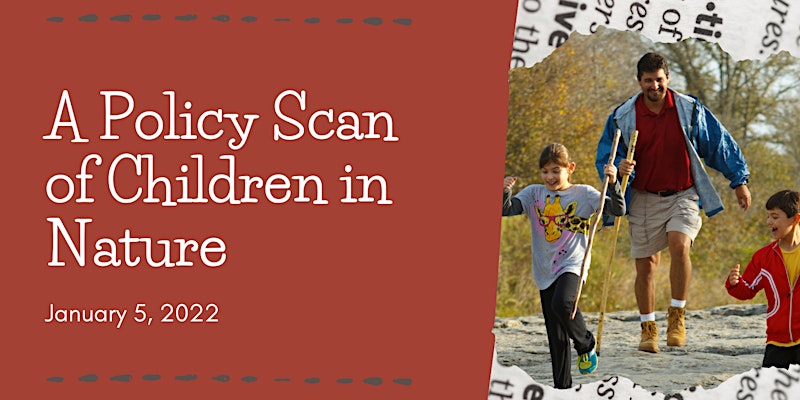 A webinar with Rosa Yin, a student at the University of Texas in Public Policy
A webinar with Rosa Yin, a student at the University of Texas in Public PolicyPolicies, especially local and state, have great influence over our day to day lives. To understand the specific influences policies play in a particular topic area, policy scans are useful tools for developing thorough understandings. This presentation’s policy scan analyzed the City of Austin’s municipal policies and programs to assess whether nature is equitable and accessible for children throughout the city. This session will discuss methods and results of the Austin policy scan to provide participants with a helpful guide to conducting their own policy scans that can evaluate access to nature.
Workshop is offered twice on January 5th, 2:00 and 7:00 Central
A zoom link for the webinar will be emailed to registrants the day of the event. If you have not seen an email come through please check your spam folder.
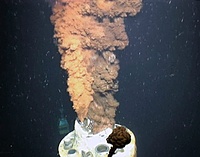
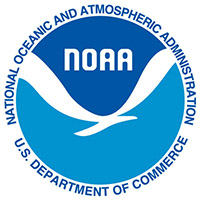
Seaside Chats is an annual speaker series about ocean topics associated with Flower Garden Banks National Marine Sanctuary and the Gulf of Mexico. These presentations take place on Wednesday evenings in February, from 6:30-7:30 p.m. (Central Time)
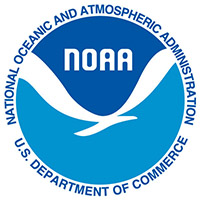
Seaside Chats is an annual speaker series about ocean topics associated with Flower Garden Banks National Marine Sanctuary and the Gulf of Mexico. These presentations take place on Wednesday evenings in February, from 6:30-7:30 p.m. (Central Time)
 Prepared Air
Prepared Air
Join Rice University for a conversation with Salmaan Craig, assistant professor of Architecture at McGill University, who studies turning biogenic building materials into heat-exchangers, Rafael Beneytez-Durán, associate professor and of Architecture at the University of Houston and an expert on “Atmosphere as Form in Architecture,” and Heather Davis, assistant professor of Culture and Media at The New School, where she her recent work has examined plastic saturation and materiality. Joseph Campana, the William Shakespeare Professor of English and director of Rice’s Center for Environmental Studies, and Liz Galvez, visiting critic at Rice’s Department of Architecture, will moderate.
Christ the King Evangelical Lutheran Church in Houston invites you to a monthly environmental education web meeting series whose theme in 2022 is Planet Earth & You. In February, join Jim Blackburn, Professor in the Practice in Environmental Law at Rice University, who will discuss his new book, Earth Church, which he co-authored with artist Isabelle Scurry Chapman. Earth Church is a book about Earth-based spirituality, a subject that will become much more prominent in a future defined by a changing climate and the creation of a new economic system that is circular rather than linear. At the center of Earth-based spirituality is the Earth itself, that wonderful planet without which we would not be. Blackburn will weave a narrative around the poetry and art of Earth-based spirituality. Time for interactive Q&A with the speaker will be provided.
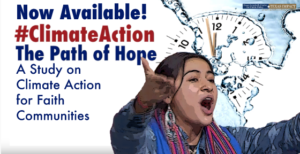
You are invited to join an online discussion series built around 15-minute videos featuring interviews with US faith leaders, representatives of climate-impacted communities from the global South, and presentations by UN officials and other experts. The videos walk viewers through four key climate policy issues that intersect with universal faith concerns for vulnerable and marginalized people. The series focuses on how climate change is impacting the core ministries of faith communities around the world, how those impacts will increase in the future, and why these impacts create an imperative for people of faith to advocate for strong US climate action.  A discussion guide is included that asks participants to think deeply about how their own local faith community’s direct service programs intersect with climate impacts, and how knowledge and experiences gained through these programs might help to inform climate policy. The study’s Action Center provides practical, step-by-step instructions for advocacy activities, as well as recommended policy asks for local, state, and national leaders.  Join us! Please register on www.eventbrite.com at https://www.eventbrite.com/e/the-path-of-hope-a-study-on-climate-action-for-faith-communities-tickets-273103288287. Contact Lisa Brenskelle at gcs.lrc@gmail.com for more information.

